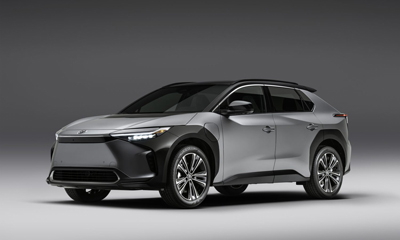While Toyota has been lagging in the battery-electric vehicle segment, a recent announcement suggested things may be changing.
Over the past several years, the Japanese auto giant has reiterated its support for hybrid solutions and shunned the idea of a shift to all-electric vehicles. And when it released the bZ4X, an all-electric car to rival best-sellers like the Tesla Model Y, it was so uninspiring, few were sold. It didn't help that it faced a major safety recall and a production halt.
But now the company says it will produce high-performance, solid-state batteries to improve vehicles’ driving range. Such innovations are also expected to cut the costs for the company’s EVs.
The plan was shared by Toyota on June 13, the day before the company’s annual shareholders meeting, as noted in a Reuters report.
Toyota said it is looking to launch its next-generation lithium-ion battery technology in 2026, which should offer longer range and rapid charging capabilities. The company also mentioned a “technological breakthrough” that addresses issues in solid-state batteries, and said it is developing a means to produce those batteries commercially by 2027 or 2028.
Solid-state batteries are superior to current battery technology, though they are expensive and scaling their production is a challenge. Toyota said it will produce an EV with a lithium-ion battery that features a range of 621 miles for the high end of the market. The company also said an EV powered with a solid-state battery should have a range of about 745 miles, and it should be capable of charging in just 10 minutes.
If Toyota were to pull off its ambitious battery plans, it would effectively leapfrog a lot of its competitors in the electric vehicle market. But while the company’s expected specs for its solid-state batteries far exceed the capabilities of commercially produced batteries available today, one would have to wonder how they will stack up against the batteries produced by the world’s most prominent EV makers in the coming years.
















